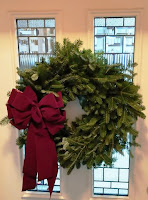If you are of Ukraine or Polish ancestry, Easter is the time you marvel
at the skills needed to make pysanky eggs. Pysanky –from “pysat,”
means “to write,” and these are intricately decorated raw eggs, but now
are often wooden ones or eggs with the content (yolk and white portion) removed.

The art of wax-resist egg decoration in Slavic cultures probably dates
back to the pre-Christian era. Fragments of colored shells with wax-resist
decoration on them were unearthed during the archaeological excavations in
Ostrówek, Poland, where remnants of a Slavic settlement from the early Piast
Era were found.
In modern times, the art of the pysanka was carried abroad by Ukrainian
emigrants to North and South America, where the custom took hold. Ironically, it
was banished in the Ukraine by the Soviet regime where it was deemed a
religious practice, and it was nearly forgotten. Since Ukrainian Independence
in 1991, there has been a rebirth of this folk art in its homeland and a
renewal of interest in the preservation of traditional designs as well as research
into its symbolism and history.
Today, in the United States, pysanky egg decoration has been
transformed into an art form that only those with patience, perseverance, and
attention to detail are able to perform.
The artist uses a soft wax, like beeswax, and many colors of dye to
create these incredible designs resembling batik. The designs are “written” in hot wax with a
pinhead or special stylus called a pysachok
or kistka which has a small funnel attached to hold a small amount of
liquid wax.

The artist starts with a white egg, moving through the color chart from
light hues like yellow to darker ones, adding the waxed design, layer upon
layer, until finally the egg is often dipped in black. Then, it’s held close to
a candle or heat source. The wax is rubbed off to reveal the entire design.
By tradition, Pysanky eggs, which are decorated with symbols of Easter, life and
prosperity, were included in the traditional Polish Easter Basket along with
butter to symbolize the good will of Christ, babka (bread) for the bread of
life, and kielbasa which symbolizes God’s favor and generosity. Other foods
like ham, smoked bacon, salt, and cheese were included. The basket was lined in
a white linen cloth that could be drawn over the top of the basket. It was then
taken to church to be blessed. A candle
was tucked inside the basket to represent Christ as the Light of the World.
Sprigs of greens were added to represent spring, new life, and the Resurrection.
With Easter around the corner, I wish everyone a Happy Easter and a
basket filled with your favorite goodies. May your life ahead be as colorful
and bright as the delightful pysanky eggs!
Amazon Author Page:https://www.amazon.com/Judy-Ann-Davis/e/B006GXN502/
Twitter ID: JudyAnnDavis4
Yahoo Groups:
wrppromo@yahoogroups.com and ahachat@yahoogroups.com and pennwriters@yahoogroups.com










